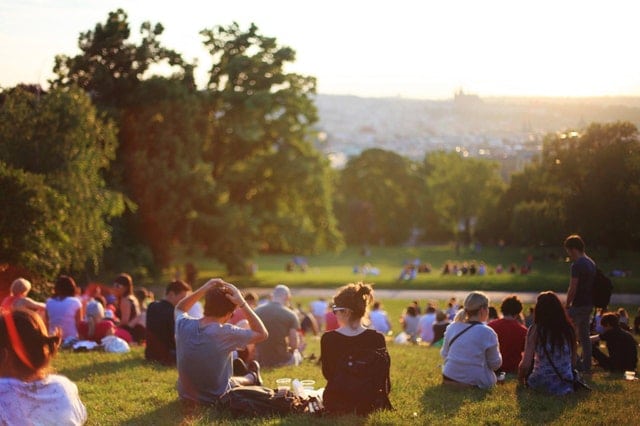04 Oct Loneliness

Loneliness has a natural anxiety connected to it, which is meant to cause us to connect back to the group. But why is loneliness so seldom talked about?
John T. Cacioppo, director of Chicago University’s Center for Cognitive and Social Neuroscience, has studied loneliness for decades. He says “denying you feel lonely makes no more sense than denying you feel hunger”. However, saying you are lonely signals social weakness, or an inability to stand on one’s own (1). So, we keep our loneliness to ourselves, and the feeling perpetuates.
Why are we lonely?
In our western world our core group has dissolved. However the drive to seek out company, a vital advantage for survival, is still active within us (2). With the increasing pace we live in today, there is less and less time to meaningfully connect. To be there for each other with our undivided attention. Slowly a society is forming that disowns human connection through the difficult experiences we face. We get lonelier. Lacking companionship, addiction and even abusive relationships can creep in.
“It is healing to be fully accepted for where you are at”
Being fully human
Loneliness is a threat to our health. It is an epidemic that is getting increasing attention and public funding all over the world. We can start to see how our tendency to prioritise and seek positivity in everything comes at a cost. When we don’t appropriately acknowledge our difficulties, we deprive ourselves. We deprive ourselves of true connectedness. Of feeling the fullness relationships and life brings, when we are present with both the “good” and the “bad”. When we share what is real and meaningful, without instantly trying to solve the pain, loneliness can lift. We feel more connected.

When you are alone – everything is an effort
Sue Bourne said those words upon completion of her documentary “The Age of Loneliness” in 2015 (3). Loneliness is a subjective experience. Loneliness and being alone can also be different things. Being alone or inhabiting solitude can be a healing thing. Some feel the loneliest when with other people (4). The disconnection and emptiness within relationships can feel worse than time spent in the safe company of just yourself.
``What makes you vulnerable makes you beautiful`` - Brene Brown
Existential loneliness
Professor Peter Strang, at the Department of Oncology-Pathology at Karolinska Institutet in Stockholm has been working with dying patients for many years. He says, whilst we cannot escape our existential loneliness, we can ease it through community. He has seen worry and anxiety, so common when you have a short time to live, shift to calm and peace through the sense of community. Physical pain shifts similarly. With the oxytocin and the connectedness of another humans caring touch, he has seen almost unbearable pain practically disappear. (5)

Moving out of loneliness
Loneliness inhibits contact, no matter how badly desired contact is (6). Social exclusion activates the same part of the brain that is activated by physical pain (7). So be compassionate towards yourself. Loneliness shouldn’t be solved 24 hours a day. Give yourself a break. Look for parts of your life where you are not alone. Connect, do a good deed. Find something that fuels you and can work as a reminder that no problem is ever 100% of your existence.
“No man ever steps in the same river twice, for it is not the same river and he is not the same man.” - Heraclitus
We cannot fully live, unless we dare to be vulnerable with another. A baby needs someone to help her regulate when she cries. Even though we get older, it is through the same co-regulation we learn to self-regulate our feelings of being alone. Practise reaching out. Practise being open and accepting towards yourself (8). If you struggle with your thoughts and your feelings, reach out to a professional. If you are in Australia, the Lifeline helpline (13 11 14) is open 24 hours.
Sources:
1) https://www.nytimes.com/2016/09/06/health/lonliness-aging-health-effects.html
2,5,7) https://ki.se/en/research/loneliness-a-danger-to-our-health
3) “The Age of Loneliness” Sue Bourne. Wellpark Production Documentary, 2015
4) https://psychotherapynetworker.org/magazine/article/1124/high-lonesome
6) Honeyman G., Eleanor Oliphant is Completely Fine, Viking – Pamela Dorman Books, 2017
8) Siegal, D. Mindsight – The New Science of Personal Transformation. Bantam Dell Pub Group, 2010





Sorry, the comment form is closed at this time.